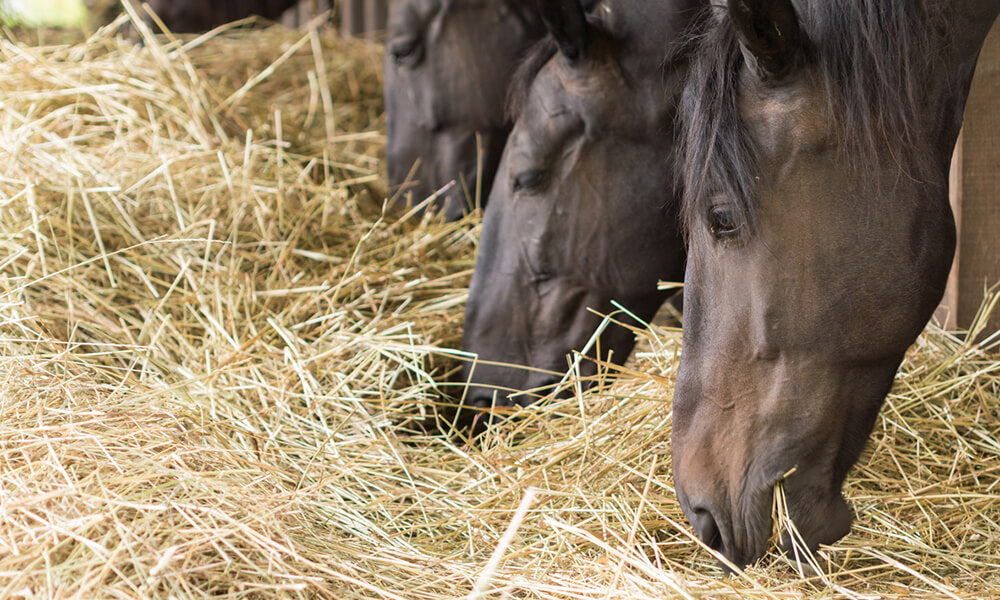When it comes to caring for horses, one of the most important aspects is feeding horses on pasture. This provides them with a natural diet, allowing them to graze and get necessary nutrients.

Understanding the Basics of Horse Pasture
Before diving into the specifics of feeding horses on pasture, its essential to grasp the basics. Horses thrive on well-managed pastures that offer a variety of forage. A balanced pasture includes grasses, legumes, and possibly some herbs, providing a comprehensive diet for your horses.
The Importance of Nutritional Balance
Maintaining a proper nutritional balance in your pasture is crucial. Horses require a diet rich in fiber with adequate protein and low in sugars. This helps avoid conditions like laminitis and ensures healthy weight and muscle development.
Assessing Pasture Quality
Regularly assess your pasture for quality and safety. This includes checking for toxic plants, ensuring theres ample forage available, and that the pasture isnt over or undergrazed. For more on ensuring pasture quality, read more on hay quality testing.
Managing Pasture Nutrition
Effective pasture management is about rotating grazing areas, reseeding bare patches, and ensuring soil fertility. Rotation helps in preventing overgrazing and keeps the pasture lush and diverse.
Dealing with Different Seasons
Seasons impact forage availability and quality. In spring and summer, pastures are rich in nutrients, while fall and winter might require supplementary feeding with hay or concentrates. Learn about feeding hay effectively during off-seasons.
Evaluating Horse Health
The health of horses on pasture is a good indicator of the pasture’s quality. Regular check-ups will ensure they are receiving adequate nutrition. Look for signs of malnutrition or deficiencies – a vet can provide guidance if something seems off.
The Role of Protein and Fiber
Horses need a diet high in fiber and moderate in protein. Pastures mostly fulfill these requirements. However, if a horse is underweight or has specific dietary needs, a nutritionist might suggest supplements.
Addressing Nutritional Deficiencies
Sometimes, even the best pasture isnt enough. Vitamin E and selenium deficiencies are common in horses on pasture. To avoid these, consider supplemental feeds or consult with a veterinarian. You can read more about vitamin E deficiency in horses.
Recommended Daily Intakes
Depending on size and workload, a horses nutritional requirements vary. On average, a horse requires around 20 pounds of forage a day, but consult with a vet for specific needs.
Supplementing the Pasture Diet
Even on a good pasture, horses may need supplements to cover gaps in their diet. Minerals, vitamins, and sometimes concentrates can help maintain optimal health and performance.
Integrating Hay and Grains
For additional energy or in winter conditions, offering hay or grains might be necessary. Different types like first or second cut hay offer unique benefits.
Creating a Pasture-Based Feeding Schedule
Developing a structured feeding schedule can help manage horse health and pasture efficiently. This includes determining grazing hours and scheduling regular nutrient checks. Additional insights can be found in our feeding schedule article.

FAQ
What are the main benefits of feeding horses on pasture?
Feeding horses on pasture offers them a natural diet, reduces feed costs, and fulfills their need for movement and grazing.
How can I improve my pasture management?
Rotational grazing, regularly reseeding, and soil fertility monitoring are key steps to improved pasture management.
What supplements might be needed for horses on pasture?
Minerals, vitamins like vitamin E, and occasionally concentrates might be required to ensure a balanced diet.
This article contains affiliate links. We may earn a commission at no extra cost to you.
